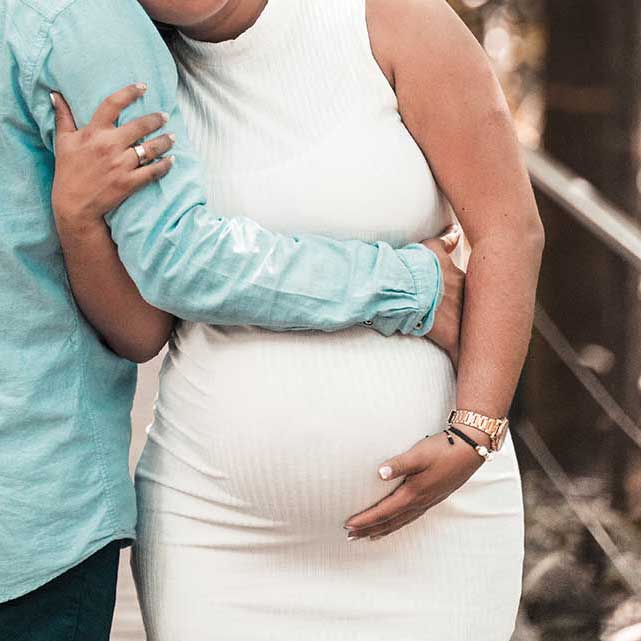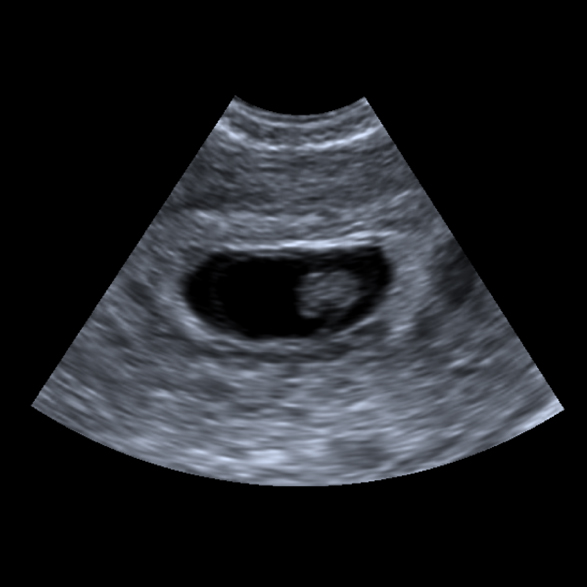Pregnancy Loss: Miscarriage

The information on this page details miscarriage which can be upsetting for some people, so please take care while you’re reading. If you have experienced a miscarriage yourself, we are so sorry for your loss.
What is a miscarriage?
In New Zealand, the Ministry of Health defines a miscarriage as losing a baby in the first 20 weeks of pregnancy. Miscarriage is fairly common – with one in every four pregnancies affected by miscarriage – but its frequency doesn’t make it any less devastating for those who go through it.
When does it typically happen?
The chance of miscarriage is highest in the first trimester, with the most at-risk period being weeks 4–6 of pregnancy. The majority of miscarriages occur within the first 14 weeks of pregnancy and around 50% of miscarriages occur just after implantation, with some people not yet being aware that they were hapū.
Once the baby’s heartbeat is detected on a scan at around 8–9 weeks and the heartbeat is ‘strong’ (120-160 beats per minute), the risk of miscarriage drops significantly and continues to decline as the pregnancy progresses.
How do I know if I’m miscarrying?
Vaginal bleeding (varying from light spotting to heavy bleeding) or period-like cramps can be the first signs of a miscarriage. Some people have lower back pain, fever or chills, a loss of symptoms like morning sickness or breast tenderness, or intuitively feel that they are no longer pregnant.
If you think you might be miscarrying, call your LMC (if you have registered with one) or your GP and describe your symptoms. They may refer you for a blood test or suggest going for an ultrasound scan at your local hospital for an assessment. If your bleeding is heavy (soaking pads) and/or you’re passing large blood clots and/or you’re in pain, it is advised to go to the emergency department at your local hospital.
Missed miscarriage
Occasionally, a ‘missed miscarriage’ happens. This is where the pēpi dies but the pregnant person’s body has not yet realised that the pregnancy has been lost. A missed miscarriage is usually picked up in an ultrasound scan where the baby does not have a heartbeat but the person has not encountered any signs of a miscarriage yet. Discovering a missed miscarriage can be a shocking and confusing experience.
Normally, after the scan, your LMC or another medical professional will guide you through the next steps and the options available to you based on your circumstances. A decision for a natural, medical, or surgical miscarriage will be made together.
What happens during a miscarriage?
There are three types of miscarriage; natural, medical, and surgical.
During a natural miscarriage, the severity of the symptoms will depend on how far along a person is in their pregnancy and the cause of the loss.
Many people experience heavy bleeding as the placenta and foetus come away from the uterus, before passing through the cervix and out of the vagina. They may feel period pain-like cramps or contractions, or feel faint or nauseous. They may see the foetus and pieces of the placenta that look like blood clots.
It can be helpful to have a support person during a miscarriage as it can be a frightening and traumatising event for some people. If you are having a miscarriage at home you may need to go to the hospital and in this instance, you cannot drive yourself.
A medical miscarriage is when a pregnant person is given tablets to induce a natural miscarriage delivery, like what we’ve described above. It’s an option for people whose pregnancy has stopped progressing but the symptoms of a miscarriage and passing of the pregnancy tissue hasn’t occurred yet. It often requires monitoring and a follow-up visit at the hospital.
A surgical miscarriage or a dilation and curettage (D&C) operation is a minor surgical procedure where pregnancy tissue is removed. This is an alternative option for people who choose or are advised not to have a medical miscarriage for personal or medical reasons. Often the pregnancy has stopped progressing but the symptoms of a miscarriage and passing of the pregnancy tissue hasn’t occurred yet.
Incomplete miscarriage
Sometimes an ‘incomplete miscarriage’ occurs which is when some of the placenta is retained in the uterus. Each hospital has its own policy and the options for treatment will be discussed with you.
Why does miscarriage happen?
A massive 70% of miscarriages are unexplained and many are a natural process – it’s nobody’s fault that it happened.
MATERNITY CARE AFTER LOSS
If you have had a miscarriage and are already registered with your LMC, you will be eligible for two weeks of care from them, following your miscarriage. Alternatively, your GP can provide you with the care you need for up to two weeks after your miscarriage and this is also free.
For information on support available to you after your pregnancy loss, see our article on support services here.



